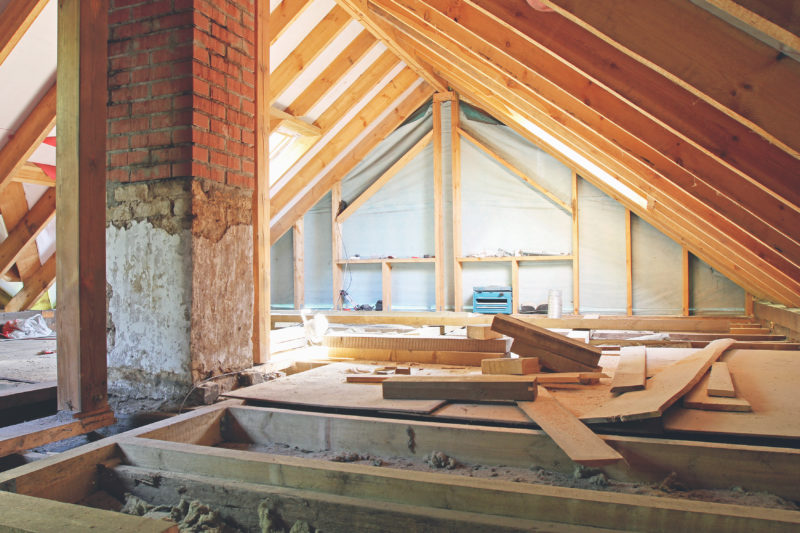You may not give much thought to your Birmingham, Alabama, home’s attic. However, when you consider that your attic can account for the greatest heat loss or gain in your home, you might want to give it a second thought and ensure it’s adequately insulated. In this guide, you’ll learn about R-values and other things you didn’t know about attic insulation.
Your Attic Insulation Has an R-Value
You’ve likely seen the term “R-value” used in connection with attic insulation, but do you know what it means? R-value refers to how resistant a material is to heat flow. In other words, the higher a material’s R-value, the greater its ability to insulate.
On the low end, loose-fill fiberglass has an R-value between 2.2 and 2.7 per inch of thickness. Loose-fill cellulose has an R-value between 3.2 and 3.8 per inch of thickness. Determining the right R-value for your home depends on where your home is located, how you heat your home, and whether you’re installing insulation into a new house or adding insulation to a preexisting home.
For homes in Birmingham and the surrounding areas, recommended R-values are between 30 and 60.
Insulation Quality Impacts Your HVAC System’s Operations
During the winter, a poorly insulated attic can contribute to heat loss through the roof, which can cause your HVAC system to work harder to maintain consistent temperatures throughout your house. Conversely, in the summer, a poorly insulated attic can result in temperatures exceeding 150 degrees and can force your air conditioning system to run more frequently.
In both cases, inadequate attic insulation can increase wear and tear on your home’s HVAC systems and increase the likelihood of a system breakdown. When your HVAC system isn’t working correctly, you also likely face higher home energy bills and reduced indoor air quality.
You Can’t Ignore Vapor Barriers
Moisture is the enemy of attic insulation. It can cause biological growth to form on and eventually degrade insulation. Consider installing a vapor barrier, made of thick 6-mil polyethylene sheeting, to keep moisture out of your attic insulation.
Insulation Doesn’t Slow Down Airflow
Misunderstandings about what insulation does abound. Certain types of insulation, like spray foam, carry an undeserved reputation for stopping air leaks. Homeowners usually have this insulation applied to cavities in the attic, walls, or floors, because they believe it will keep any air from seeping into the attic. While spray foam insulation does help reduce heat gain and heat loss, air can still flow through this type of insulation just as easily as it can through other types of insulation.
When combined with your home’s siding or other similar exterior materials, gypsum board is more effective than insulation at blocking outdoor air from leaking into your home. You can also use caulk and weatherstripping to seal cracks or gaps that let outside air flow into your home.
Cellulose Isn’t a Bad Choice for Insulation
Insulation is commonly available in many different forms, including fiberglass, mineral (rock), foam, cotton, wool, and cellulose.
Cellulose insulation is composed primarily of recycled newspapers turned into fibers, and it offers a slightly greater R-value per inch than does fiberglass insulation. As a result, you’ll need less insulating material with cellulose to achieve the same insulating power fiberglass offers. Loose-fill (or blow-in) cellulose material contains small chunks of fibers blown into place using a special machine. The benefit of this type of insulation is that it fills in small crevices and is easier to install in existing floors and wall spaces.
Although cellulose insulation does have paper material in its composition, cellulose is treated with a fire-resistant material called borate, which allows it to be installed safely in home settings. Even with the paper composition, cellulose insulation is no more at risk for biological growth than other types of building materials.
Whether you need to add more insulation to your attic or completely replace your home’s attic insulation, One Source Heating, Cooling, Plumbing & Electrical can help. Call us at (205) 509-1929, and let our attic insulation specialists help you choose the proper insulation type for your home.
Image provided by Shutterstock



